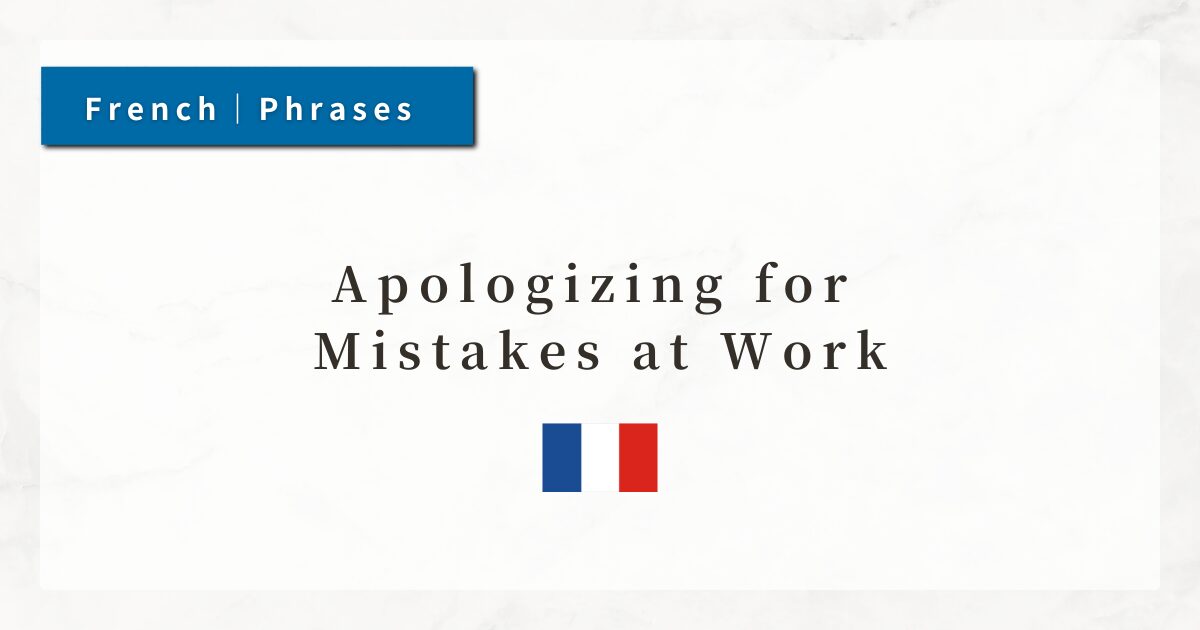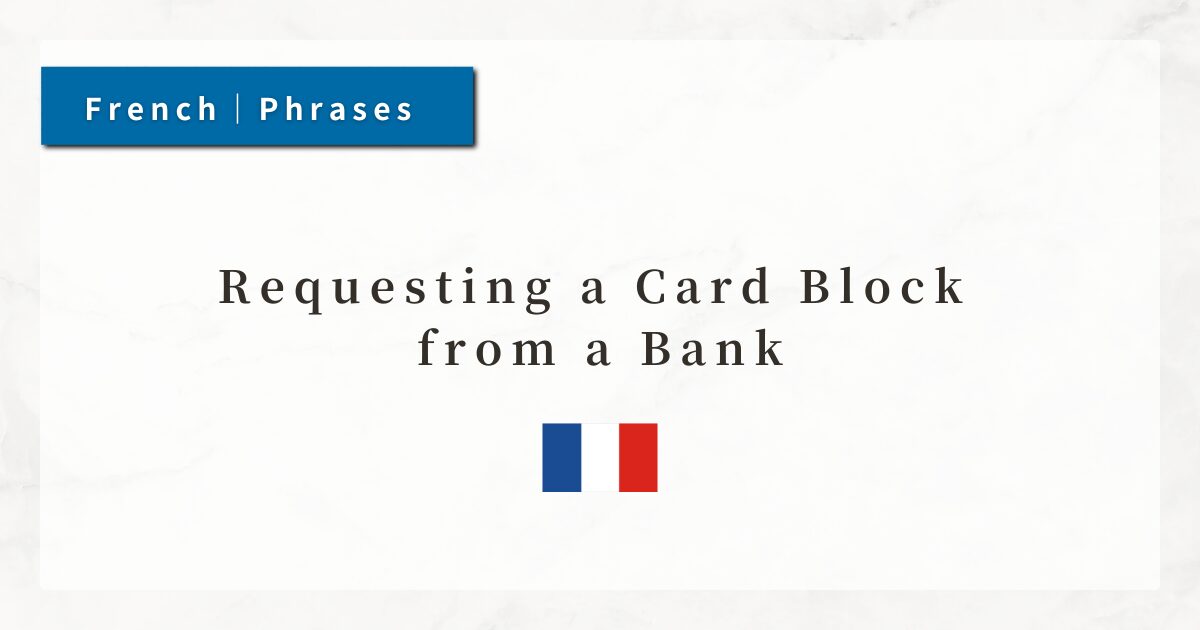#43 Apologizing for Mistakes at Work|Useful French Phrases for Business

In the workplace, anyone can make mistakes. In such situations, offering an appropriate apology and explaining the circumstances is crucial for maintaining trust.
In French, there are several levels of apology—from a simple “I’m sorry” to more formal expressions such as “I sincerely apologize for the inconvenience.”
Here, I will explain basic phrases for apologizing, more polite expressions, and useful sentences for presenting solutions.
Dialogue

Je voulais vous parler d’une erreur que j’ai commise.
(I would like to speak to you about a mistake I made.)

Ah, de quoi s’agit-il ?
(Oh, what is it about?)

Je suis désolé(e), j’ai envoyé le mauvais document au client.
(I’m sorry, I sent the wrong document to the client.)

D’accord, l’important est de corriger rapidement.
(All right, the important thing is to correct it quickly.)

Bien sûr, je vais renvoyer la bonne version tout de suite.
(Of course, I will resend the correct version immediately.)
1. Basic Ways to Apologize
The most common expression in French is: “Je suis désolé(e).” (I’m sorry.) Désolé is an adjective meaning “sorry” or “regretful.” When spoken by a woman, it is written désolée.
- Je suis désolé, j’ai fait une erreur.
(I’m sorry, I made a mistake.)
Another lighter way to say “sorry” is “Excusez-moi.”
- Excusez-moi, je me suis trompé de fichier.
(Sorry, I chose the wrong file.)
This is close to English “Excuse me”, and is also used to get someone’s attention.
2. Verbs Meaning “to Make a Mistake”
French has several expressions to say “to make a mistake,” most commonly:
- faire une erreur
(to make a mistake) - commettre une erreur
(to commit an error)
Commettre is slightly more formal and is often used in business contexts.
- J’ai fait une erreur dans l’adresse e-mail.
(I made a mistake in the email address.) - J’ai commis une erreur dans la facture envoyée.
(I made an error in the invoice I sent.)
3. Polite Phrases for Formal Apologies
In business situations, more formal expressions of apology are sometimes required.
- Je vous présente mes excuses.
(I sincerely apologize.) - Je suis vraiment désolé pour la confusion.
(I am truly sorry for the confusion.) - Veuillez nous excuser pour cet incident.
(Please excuse us for this incident.)
The phrase “présenter ses excuses” means “to extend one’s apologies” and is commonly used in formal contexts or written communication.
The structure “Veuillez …” is a polite request form meaning “please …” and is frequently used in business correspondence.
4. Phrases for Offering Solutions
In business, it is essential to show sincerity through action. Apologizing is important, but so is explaining how the problem will be solved.
- Je vais corriger immédiatement.
(I will correct it immediately.) - Je vais renvoyer la bonne version tout de suite.
(I will resend the correct version right away.) - Cela ne se reproduira plus.
(It will not happen again.)
By presenting a solution or corrective action, you demonstrate responsibility and rebuild trust.
Summary
- Je suis désolé(e). / Excusez-moi.
→ Basic apology expressions. - faire une erreur / commettre une erreur
→ Common ways to say “to make a mistake.” - Je vous présente mes excuses. / Veuillez nous excuser.
→ Polite, formal ways to apologize. - Presenting solutions
→ Expressing how you will correct the issue helps restore trust.




